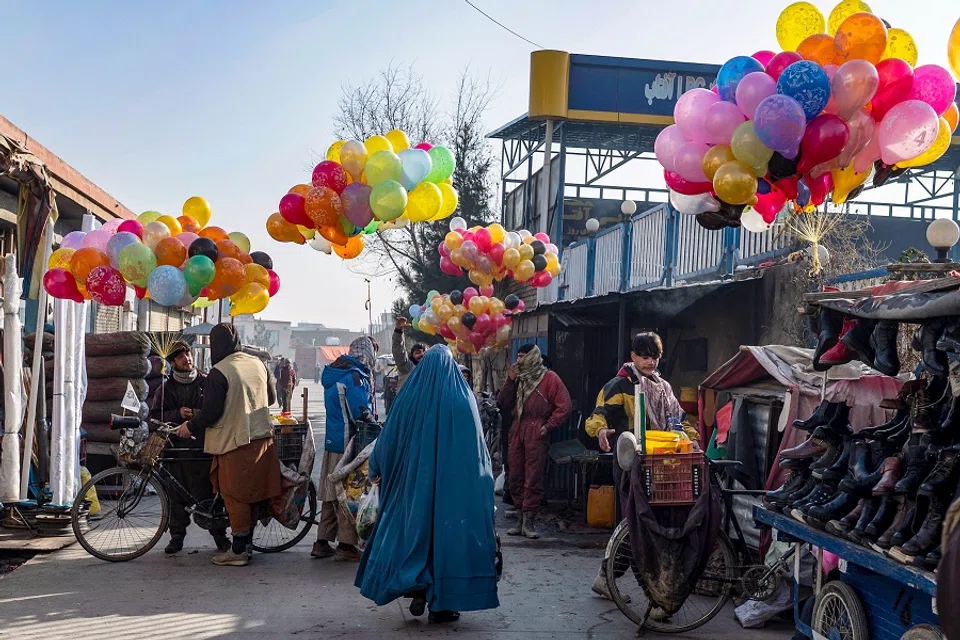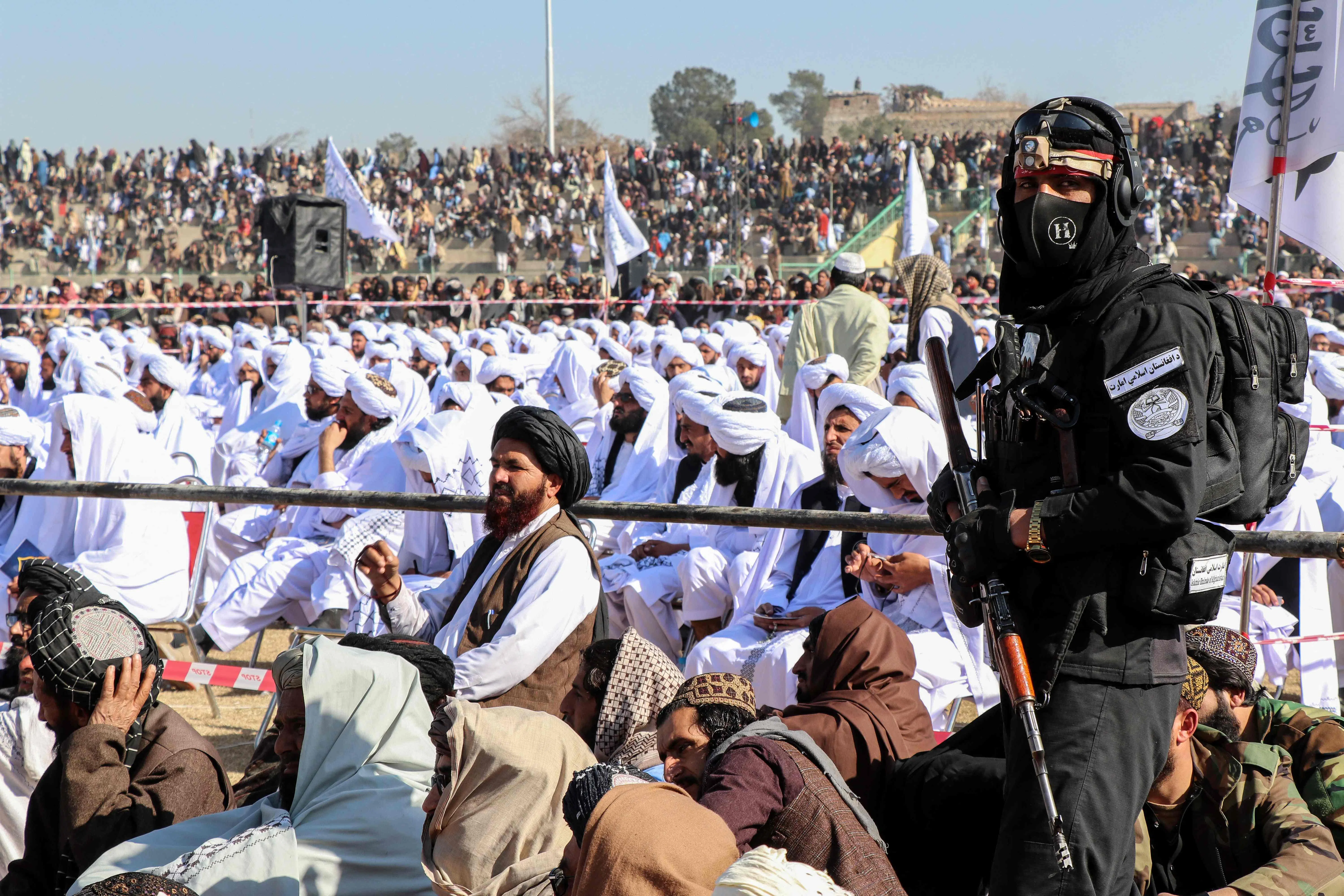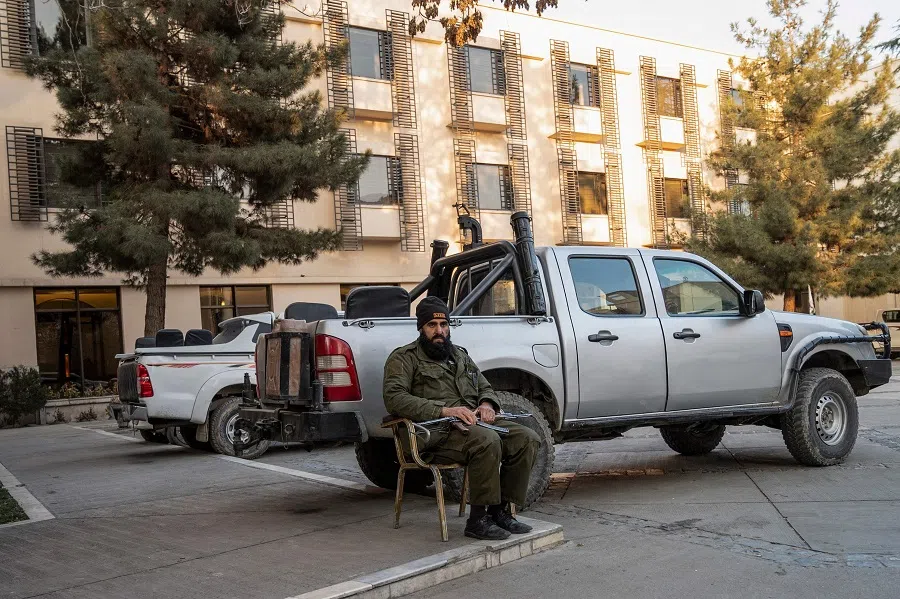How Trump and China influence India’s Taliban policy
On the back of Indian Foreign Minister Vikram Misri’s recent meeting with Afghanistan’s Acting Foreign Minister Malavi Amir Khan Muttaqi, Delhi is signalling a recalibration of approach to the Taliban in Afghanistan, as it keenly observes Kabul’s growing ties with China and Pakistan. Indian academic Rishi Gupta analyses the situation.

In the first-ever bilateral engagement since the US’s withdrawal from Afghanistan, Indian Foreign Secretary Vikram Misri met Afghan Acting Foreign Minister Malavi Amir Khan Muttaqi, in Dubai on 8 January 2025. This was a long-overdue engagement, especially since the two countries share deep sociocultural and historical ties.
Long-overdue
Since August 2021, India has put in place a “wait and watch” strategy in dealing with and recognising the new Taliban regime. For India, Afghanistan is a significant geography, especially its location that puts it at the crossroads of South Asia, Central Asia and the Middle East, which offers greater regional connectivity and paves the way for energy access through projects like the Chabahar Port in Iran.
... the new engagement comes to address the vacuum and deal with the China challenge.
However, on recognising the Taliban regime, Delhi’s position that “India’s stance in regard to recognition of the Islamic Emirate of Afghanistan is in consonance with that of the international community” has caused a vacuum in the bilateral ties. In contrast, the regional competitor China began engagement with the Taliban a month after they took over the country.
While India continued with its humanitarian support to Afghanistan, the new engagement comes to address the vacuum and deal with the China challenge. Meanwhile, the timing of the meeting also tells the story of India finding some ground with Trump 2.0 in engaging the Taliban.
But is this a long-overdue recalibration or a gamble fraught with risks? And how far is New Delhi willing to go in its balancing act?
The China challenge
After the US withdrawal, China was among the very few countries to engage with the Taliban regime. But Beijing opted for a pragmatic approach — evolving with the Taliban leadership to understand the modus operandi of Taliban 2.0 rather than recognising the regime outright to avoid inviting international criticism and reputational backlash. This could have also complicated Beijing’s ties with the West considering the Taliban’s poor human rights record. But at no point did Beijing appear disconnected from the regime, and back-door discussions often made their way to the media.
China was also the first country to host an 11-member Taliban delegation on 28 July 2021 — ahead of the complete withdrawal of the US troops from Afghanistan in August — a reflection of how active Beijing was in sensing the quick takeover by the Taliban. This visit had a warning message from Beijing to the West, as the readout echoed, “Truly implement the ‘Afghan-led and Afghan-owned’ principle.” China had also invited the Taliban to attend the Belt and Road Forum in Beijing in October 2023.
With Xinjiang’s complex demography and vulnerability to getting caught in the extremist nexus with the region either via Pakistan or Afghanistan, better ties with Afghanistan will bring guarantees that such movements will not be exported to China in any manner.

What marked the significant engagement was Beijing’s appointment of its ambassador to the Islamic Emirate of Afghanistan under the Taliban regime in October 2023. This was the first and crucial de facto recognition of the Taliban regime, especially from a neighbouring and powerful country in the world.
Six months after sending an envoy to Afghanistan, Chinese President Xi Jinping accepted the credentials of Asadullah Bilal Karimi, the Afghan envoy to China, in January 2024. This move signals to the global community that “China believes Afghanistan should not be excluded from the international community”. Xi expressed confidence that diplomatic recognition of the Afghan government will naturally occur as various parties’ concerns are addressed. This stance is increasingly relevant as India and over 30 other countries continue to engage with the current regime.
Afghanistan’s importance
While China has traded with the Taliban with caution and patience, crucial questions pop up: what makes Afghanistan so important to China?
First and foremost, Afghanistan’s strategic location is in China’s Xinjiang region. With Xinjiang’s complex demography and vulnerability to getting caught in the extremist nexus with the region either via Pakistan or Afghanistan, better ties with Afghanistan will bring guarantees that such movements will not be exported to China in any manner. The second crucial component of China’s Afghan quest is the rich natural resources, especially critical earth minerals, essential for the tech industry, including defence, automobiles and space.
Additionally, Afghanistan is a crucial geography in China’s Belt and Road Initiative and revival of the ancient Silk Route. With these objectives in place, China also sees an opportunity under the current regime to fill the strategic vacuum left behind by the US. At the same time, Beijing’s stance on Afghanistan aligns with the needs of the Taliban, as China has no intention of promoting democracy.
Amid Beijing’s new strategy to engage with the Taliban with clear objectives, Delhi sees it as a challenge to its historical engagement with Afghanistan. There remains little doubt that among the regional countries, India has enjoyed deep-rooted people-to-people ties that have been part of Indian society. A large community of Afghans has resided in India for many decades. After the Taliban took over, India saw more and more refugees coming to India — posing a multidimensional risk for Delhi.
Furthermore, Delhi is also concerned that following its tensions with China at the borderline of Actual Control (LAC) and no-talks with Pakistan, the two may join hands in Afghanistan and make it a haven for anti-India activities, which could dent India’s regional presence and threaten its security.
For dialogue policy to be successful, the US would require a dependable partner, and India is placed well in the regional context.
Trump’s solid backing
The Indian foreign secretary’s meeting with the acting foreign minister of Afghanistan in Dubai, just two weeks before President Donald Trump was scheduled to take office in Washington DC, on 20 January, underscores a strategic recalibration by New Delhi.
India likely anticipates shifts in American foreign policy under Trump 2.0 towards Taliban-ruled Afghanistan, especially given his prior record of engaging directly with regimes rather than isolating them, be that Russia or North Korea. Also, India and the US share a common vision of “Zero-Tolerance to Terrorism” and have consistently collaborated bilaterally and multilaterally to denounce terrorism unequivocally. Therefore, this may be the right moment for the two.

President Trump’s promise to be a “peacemaker and unifier” in his inaugural address signals a probable willingness to re-engage with the Taliban. It was President Trump who negotiated the landmark US Taliban withdrawal deal during his first term, setting the stage for future dialogue. Trump may prioritise stability through engagement over isolation, which could open new avenues for dialogue with the Taliban.
For dialogue policy to be successful, the US would require a dependable partner, and India is placed well in the regional context. For the US, Pakistan is no longer a reliable partner with whom the US relied for its “war on terror” but was found to be sponsoring the menace of terror and sheltering the most wanted terrorists like Osama bin Laden, who was found and killed in Pakistan by the US Navy SEALs in Pakistan’s Abbottabad in 2011.
India offers a stable and credible partnership rooted in shared democratic values and a mutual commitment to combating terrorism. India’s consistent track record of investing in Afghanistan’s development — through infrastructure projects, education, and humanitarian aid — has earned it significant goodwill among the Afghan people, making it a more trusted stakeholder in the region.
But one thing is for sure — Delhi would prefer not to be the first to initiate, name or recognise the Taliban regime in any formal capacity.
Treading carefully
Agility and agenda will define India’s measured engagement with Afghanistan. While providing vital humanitarian aid, including 50,000 metric tons of wheat, 300 tons of medicines, and 1.5 million Covid-19 vaccine doses, Delhi is keenly observing Kabul’s growing ties with China and Pakistan. Resuming normal operations at its embassy in Kabul, where an Indian technical team has been stationed since 2022, could be the next step. Meanwhile, the Taliban’s takeover of the Afghan embassy in Delhi in November 2023 underscores Afghanistan’s evolving dynamics.
Staying aligned with the international community, India is treading carefully, balancing humanitarian commitments with strategic vigilance in a complex regional environment. But one thing is for sure — Delhi would prefer not to be the first to initiate, name or recognise the Taliban regime in any formal capacity.





